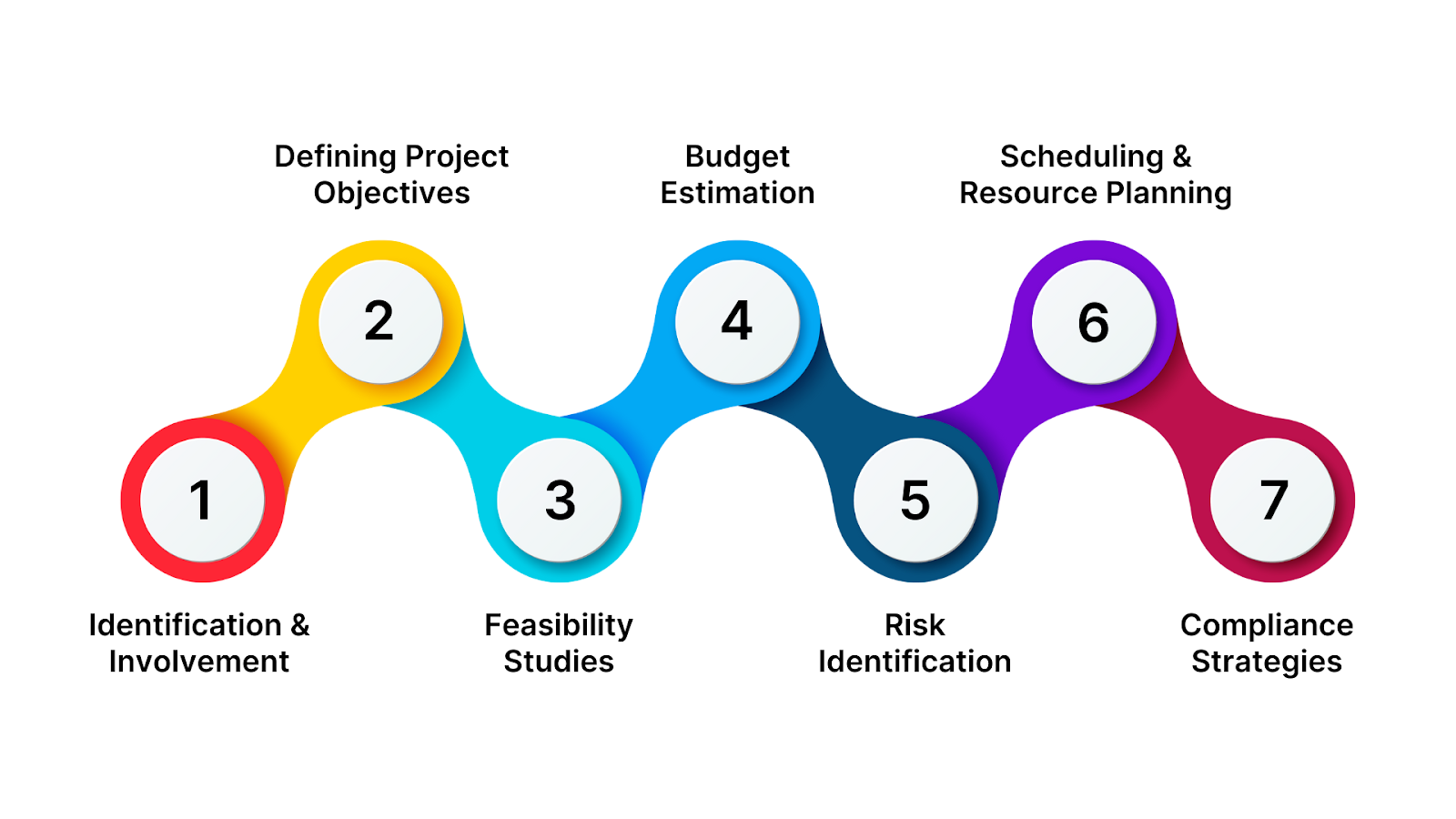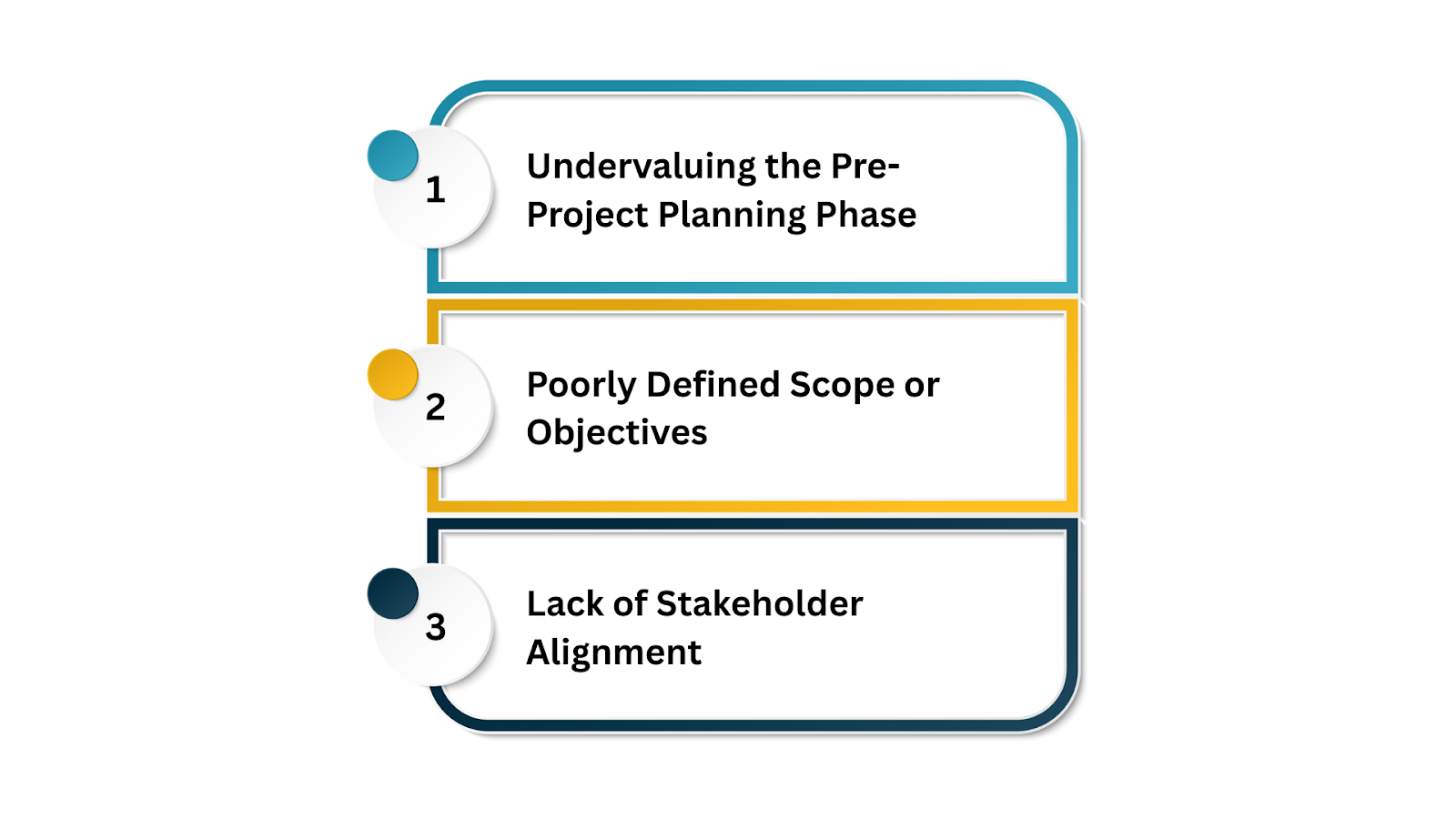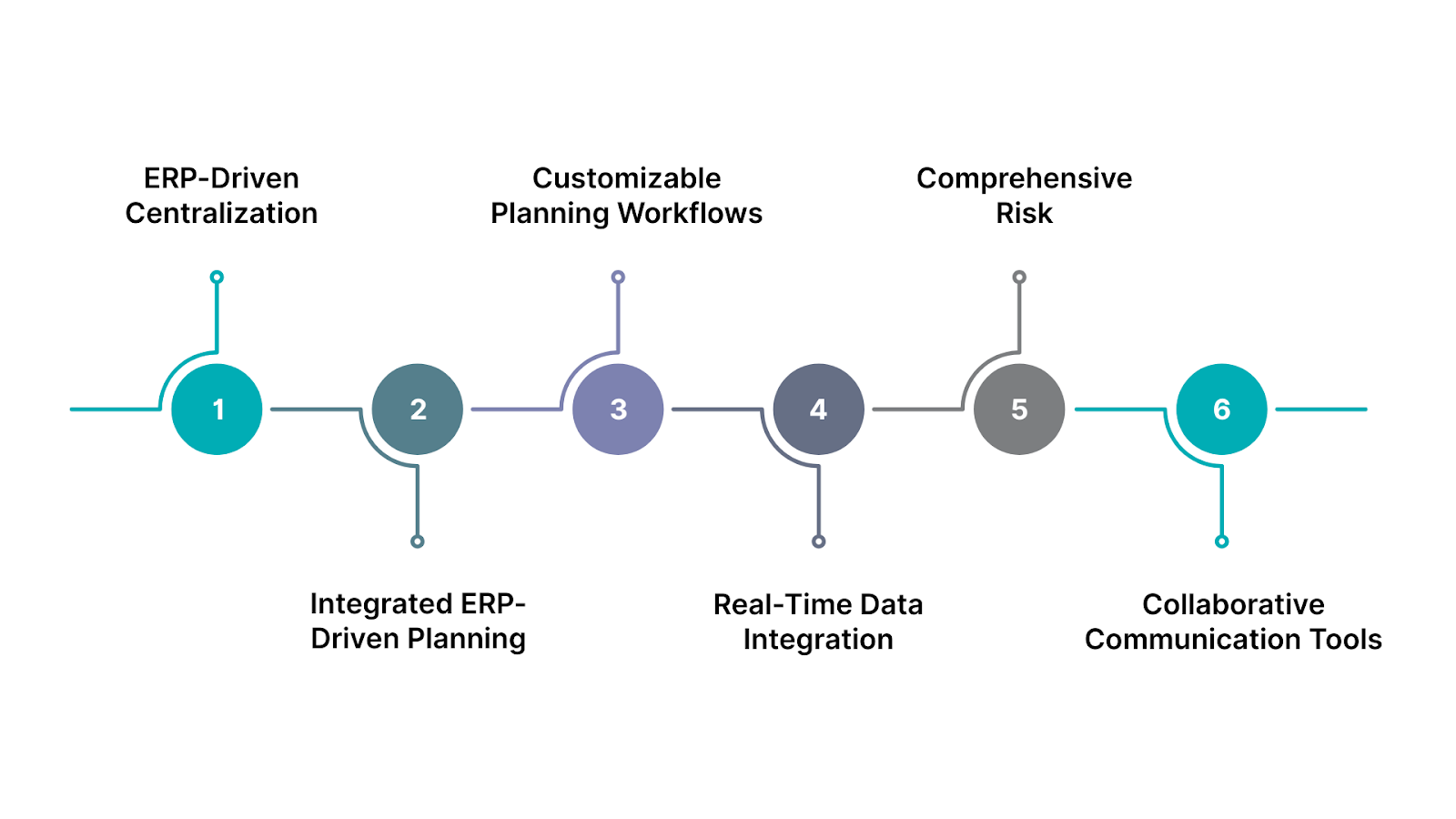
In the construction industry, the difference between a project’s success and failure often lies in the quality of pre-project planning. Pre-project planning is the essential phase that takes place before construction begins. This phase includes defining the project’s objectives, scope, timelines, budget, resources, and potential risks.
In Saudi Arabia, the construction industry is experiencing rapid growth due to the country's rapid urbanization and the government’s Vision 2030, which aims to diversify the economy and undertake large-scale infrastructure projects.
With multi-billion-dollar Giga projects such as NEOM, The Red Sea Project, and Qiddiya shaping the nation’s future, the importance of thorough pre-project planning becomes even more critical. These high-stakes initiatives demand precise coordination, resource allocation, and risk management—making the planning exercise vital for long-term success.
In this blog, we will talk about the pre-planning in construction and what the benefits and pitfalls of the same are.
Pre-project planning refers to the phase that takes place before the actual construction work begins. Unlike the execution phase, which focuses on building the project, pre-project planning involves laying the groundwork for every aspect of the project, ensuring that everything is in place for smooth execution.
It includes defining the project’s objectives, scope, timelines, financial requirements, and resources. By clearly identifying deliverables and ensuring all components are addressed before construction begins, pre-project planning minimizes the chances of delays and cost overruns.

Pre-project planning comprises several key components that provide a foundation for the entire project lifecycle. This critical phase includes activities such as defining project objectives and scope, conducting site assessments, and estimating budgets, which collectively shape the direction and success of the construction process.
Let’s take a closer look at these crucial elements.
Before diving into the specifics of a project, identifying and involving stakeholders is essential. These are the individuals, groups, or organizations that have an interest in the project’s outcome.
Stakeholders might include the client, project team, suppliers, contractors, regulatory authorities, and even the local community. Early stakeholder engagement ensures that expectations are aligned and that their concerns and interests are considered throughout the project.
For example, Jash Holding, a leader in facilities management and contracting, faced inefficiencies in payroll, inventory, and project cost accuracy across subsidiaries. Implementing HAL’s centralized financial workflows, streamlined payroll for 4,000+ employees, improved asset control, and enabled bilingual support.
The result was 60% higher efficiency, reduced manual work, accurate project costing, and an estimated 35% ROI within the first year.

Defining clear project objectives is critical to ensuring that everyone is working toward the same end goals. The project scope outlines what will and will not be included in the project, setting boundaries to prevent scope creep during the execution phase.
This is where you determine the project’s purpose, key deliverables, and the overall vision. A well-defined scope reduces ambiguity and ensures all stakeholders are on the same page.
Feasibility studies involve assessing whether the proposed project is viable in terms of technical, economic, and operational factors. This step is particularly crucial when working on complex or large-scale projects.
Site assessments also play a crucial role in pre-project planning, as they evaluate the suitability of the location for construction. Factors such as soil condition, environmental impact, accessibility, and nearby infrastructure must all be carefully considered to avoid complications during construction.
Creating an accurate and realistic budget is one of the most critical aspects of pre-project planning. Financial planning includes not only estimating the costs of materials, labor, and equipment but also accounting for contingencies and unforeseen expenses.
Proper budgeting ensures that the project is financially feasible and helps prevent cost overruns, which can lead to project delays or even abandonment. Securing necessary funding and setting a clear financial plan will help keep the project on track.
Every project comes with risks, and the construction industry is no exception. From adverse weather conditions to labor shortages and safety hazards, identifying potential risks early on is crucial for managing them effectively.
By conducting risk assessments and implementing mitigation strategies, project managers can prepare for the challenges ahead. Common mitigation strategies include having contingency plans, purchasing insurance, and implementing safety protocols.
Scheduling is another critical component of pre-project planning. This involves determining the project’s timeline and allocating resources efficiently to meet deadlines. Resource planning encompasses everything from labor to materials and equipment, ensuring that the right resources are available at the right time and in the right quantities.
By creating a detailed schedule and resource plan, you can avoid delays and ensure that the project progresses smoothly from start to finish.
Before construction can begin, obtaining the necessary permits and ensuring compliance with local regulations is essential. These can range from zoning permits to environmental clearances, depending on the project's location and nature.
Regulatory compliance helps avoid legal issues and delays during construction. Establishing a plan for securing permits and ensuring compliance should be a priority during pre-project planning.

Pre-project planning is important for making sure a project goes well. Taking the time to carefully examine the project's goals, what it includes, and potential problems helps teams identify risks and develop effective plans.
Here are the main reasons why spending time and effort on this step is so valuable.
Having a clear budget and schedule helps keep the project within budget and on time.
This helps meet what clients expect and makes the project more successful.
By finding and dealing with risks early, teams can avoid unexpected issues during the project. This helps stop delays and extra costs.
Careful planning ensures the project meets high standards. Clear goals, smart use of resources, and risk plans all help get good results.
When the planning is done well, the project runs more smoothly, and stakeholders are more satisfied. Good communication, clear roles, and efficient processes make everything work better.
Even though there are many advantages, there are also some common mistakes to avoid during this planning stage. Let's look at those next.


Pre-project planning is a critical phase for construction success, yet many teams encounter recurring challenges that threaten schedules, budgets, and quality. Proactively addressing these pitfalls can set projects on a solid footing and safeguard productivity throughout each stage.
To effectively navigate these challenges, it’s crucial to implement strategies that address the pitfalls identified above. Let’s look at how HAL can help streamline your pre-project planning.
Also Read: Top ERP Modules: Types, Functions and Benefit

Implementing successful pre-project planning in construction can be challenging, especially when managing various stakeholders, budgets, and timelines. HAL simplifies this process with innovative solutions to ensure seamless execution.
Here is how HAL makes project management easy and effective:
With HAL, construction companies can transform their pre-project planning into a powerful tool for delivering successful projects. HAL ensures that your planning process is streamlined, data-driven, and ready for smooth execution.

In conclusion, pre-project planning is an essential phase in ensuring the success of construction projects. By laying a strong foundation through careful planning, defining clear objectives, managing risks effectively, and aligning stakeholders, construction teams can significantly enhance cost control, scheduling, and overall project outcomes.
HAL’s innovative tools and solutions streamline this process, helping project managers stay on track and achieve seamless execution. With effective pre-project planning, construction projects are better positioned to meet deadlines, stay within budget, and deliver high-quality results.
1. Why is pre-project planning important in construction?
Pre-project planning ensures clear objectives, resource allocation, and risk management, laying a strong foundation for the successful execution of construction projects.
2. What are the main components of pre-project planning?
The key components include stakeholder involvement, project scope and objectives, feasibility studies, budgeting, risk management, and scheduling.
3. How does pre-project planning reduce the risk of delays?
By identifying potential risks early, allocating resources efficiently, and defining clear project milestones, pre-project planning minimizes uncertainties that can lead to delays.
4. Can pre-project planning help manage project costs?
Yes, by establishing a realistic budget, identifying financial resources, and planning contingencies, pre-project planning helps keep construction costs under control.
